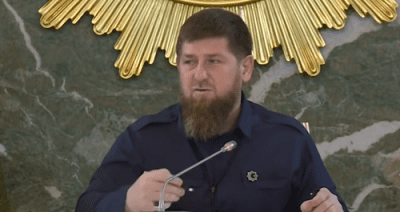The COVID-19 Pandemic Starts to Have Its Toll on the North Caucasus
Publication: Eurasia Daily Monitor
By: Valery Dzutsati
The Jamestown Foundation

COVID-19 has now started to spread to Russia’s North Caucasus republics, and regional authorities have been scrambling to mobilize scant resources to stave off the pandemic. As of March 30, officials confirmed infections in Adygea, Chechnya, Kabardino-Balkaria, as well as Krasnodar and Stavropol regions. The reported numbers of infections are still relatively low—from four confirmed cases in Adygea and Dagestan to nine in Chechnya. No deaths connected to the novel coronavirus have been reported to date in the region (Yandex.ru, March 30). Yet, those official statistics could be skewed due to the restrictions authorities put on the spread of information and because of the lack of testing facilities (Insider, March 28).
The most remarkable consequence of the pandemic in the North Caucasus so far has been the variation in regional authorities’ responses to it. The governor of Dagestan, Vladimir Vasiliev, banned all public events in the republic starting on March 28. And between March 30 and April 5, restaurants and other catering enterprises are temporarily stopping work, too, except for takeaway services (Rossia-Dagestan TV, March 27). In Kabardino-Balkaria, the government has urged employers to allow employees to telecommute (Kbrria.ru, March 27).
The most sweeping measures to date have been announced in Chechnya. On March 28, Chechen authorities prohibited entry into the republic with the exception of medical personnel and food supplies (TASS, March 29). In Chechnya, a strict lockdown was announced from March 29 onward (TASS, March 29). Previously, on March 27, Grozny airport was instructed to accept only those passengers with a residence permit or registration in the Chechen Republic. The airport administration asked all those not registered in Chechnya to avoid purchasing tickets for the Moscow–Grozny flight or to return their already-purchased tickets. The restriction will be enacted for the duration of the pandemic. Only one scheduled flight that connects Grozny with the Russian capital will be operational (Interfax, March 27). The ruler of Chechnya, Ramzan Kadyrov, ordered the closure of most restaurants and cinemas in the republic. The notorious Chechen governor also stated that people who broke quarantine rules “deserved to die.” Chechnya’s authorities themselves, however, have not been following their own quarantine rules. On March 25, republican officials inaugurated a new art center in Grozny with the participation of hundreds of people, many of them elderly (Kavkazsky Uzel, March 27).
Administrative border closures might proliferate across the North Caucasus if the scale of the pandemic keeps growing. At least three reasons point to a likelihood that intra-regional frontiers will harden. First, relations between most neighboring republics in the North Caucasus have been uneasy anyway (see EDM, January 29, February 10, 27). And the spread of the novel coronavirus will contribute to the growth of existing cultural biases and distrust, as it already has elsewhere. Second, the lack of necessary materials to fight the COVID-19 outbreak will lead the regional authorities to restrict the movement of many goods. Third, the infrastructure for closing the borders is already in place. Most republics in the North Caucasus have maintained checkpoints in the border areas despite past vows to remove all such barriers (Kavkazsky Uzel, November 15, 2019).
The economic fallout of the spreading pandemic might become particularly devastating for the North Caucasus economies. Unemployment has traditionally been higher in the North Caucasus than in other Russian regions (RIA Novosti, October 29, 2019). Closing down restaurants, markets, and other labor-intensive enterprises will eliminate the livelihoods of most people who do not receive government salaries.
Tourist companies have announced that they are suspending their operations. Tourism is a particularly important source of revenue in Kabardino-Balkaria and Karachaevo-Cherkessia. In 2019, they received an estimated 0.6 million and 1.5 million tourists, respectively (TASS, March 27). The Russian government issued a decree on March 27 that “recommended” that the activities of resorts and other mass recreational facilities be suspended from March 28 until June 1. The government in Moscow also counseled that restaurants be closed between March 28 and April 5 (Government.ru, March 27). Aeroflot’s low-cost subsidiary Pobeda has announced that it is suspending its operations (RBK, March 27).
The spread of the pandemic with potentially devastating consequences for the local economy is accompanied by the economic crisis at the national level. The drop in oil prices already devalued the ruble, and the Russian budget might run a deficit for the first time in years (see EDM, March 25). This will also reduce Moscow’s ability to financially prop up the North Caucasus regions, which customarily receive most of their budgetary revenues as subsidies from the central government.
The implications of the unfolding pandemic and economic recession in the North Caucasus are hard to foresee. However, it is evident already that some regions are more proactive in taking the lead in the effort to manage the risks and mitigate the negative consequences than others. The central government appears unable to adequately react to the rapidly changing situation, which creates opportunities for regional political entrepreneurs to enact policies in accordance with realities on the ground rather than wait for instructions from Moscow. Depending on how the pandemic and economic crisis evolve, a spontaneous federalization of Russia might become one of the unexpected consequences of the tumultuous times. Stronger Russian regions might regain part of the political clout they lost to the center during the years Vladimir Putin spent building the “power vertical.”
The Jamestown Foundation kindly allows Modern Tokyo Times to publish their highly esteemed articles. Please follow and check The Jamestown Foundation website at http://www.jamestown.org
https://twitter.com/JamestownTweets The Jamestown Foundation
Photo source: The photo in this article is the original image uploaded by The Jamestown Foundation (source: Chechen leader Ramzan Kadyrov (Source: Caucasian Knot)
https://jamestown.org/program/the-covid-19-pandemic-starts-to-have-its-toll-on-the-north-caucasus/